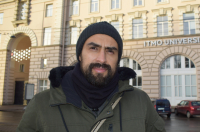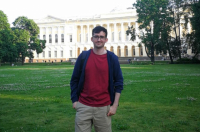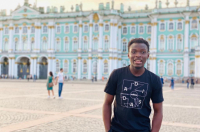Jose David is a second-year student at the Faculty of Software Engineering and Computer Systems. He came to Russia two years ago searching for the opportunity to get a good education and to accomplish the bigger challenge of his life – studying abroad. From Siberia to St. Petersburg, his path has been long, but ultimately led him to ITMO. We caught up with him to talk about his academic journey and life in Russia.
How did you become a student at ITMO University?
I was supposed to study in Novosibirsk because I did my foundation program (a preparatory year-long course that focuses on the Russian language – Ed.) there and after that, reading about the courses offered there, I realized it wasn't something I was intrigued by and I didn't want to stay there. Then, I started looking for other universities in Russia and found myself choosing between ITMO and universities in Moscow, but in the end, I decided on ITMO due to its fame and recommendations from friends. I would never change my decision. This university is amazing and I love the way my life has developed during my time here. I’ve always had an interest in computing. I love programming and computers. It is a field with a lot of future and development, and I think that ITMO is the best place to study in this field.
How did you end up in Russia?
I have a scholarship from the Russian government. I was in my second year at the University of Valle in Colombia and looking for opportunities in other universities. The Colombian Ministry of Education publishes all the scholarships available for Colombians, and the Russian one sounded pretty good, so I decided to give it a try. I won it because I had good grades at school and in my first year at university; the process was relatively easy – I just put together all the necessary documents and waited till they called me. Obtaining a Russian visa and necessary documents is easier than you may think; actually, for students, the process is quick and not too expensive unlike in some other countries.
Have you decided to study remotely or in-person?
I chose to study online because at the start of the semester the situation with COVID was not good, and I was scared of going to the university with too many people. But I actually kind of like studying online. I’m a very organized guy, so I am not struggling with tasks. I like just sitting at home and going through things by myself.
How did you feel the first days of coming to Russia, what were your first impressions?
The weather was hard. During my first winter in Siberia, I realized what it is like to feel real cold. Living at -40°C for the first time in life was an eye-opening event, and when I came to St. Petersburg it was easier for me to survive the winter. The language was the biggest challenge. In Siberia, nobody speaks any other language! So I had to learn Russian quickly; you feel like everyone is shouting at you on the street or in the markets, but it is something you get used to and try to make the best of it. Coming here was a relief as the city is bigger and you come across people who speak English more frequently. It is easier to express yourself. The food was a big challenge and change for me as it is impossible to find some ingredients of a Colombian daily diet. I’ve yet to try new things like гречка (buckwheat). The Russian cuisine for me is delicious and in the end, you become fond of it. It is another experience of living far from home.
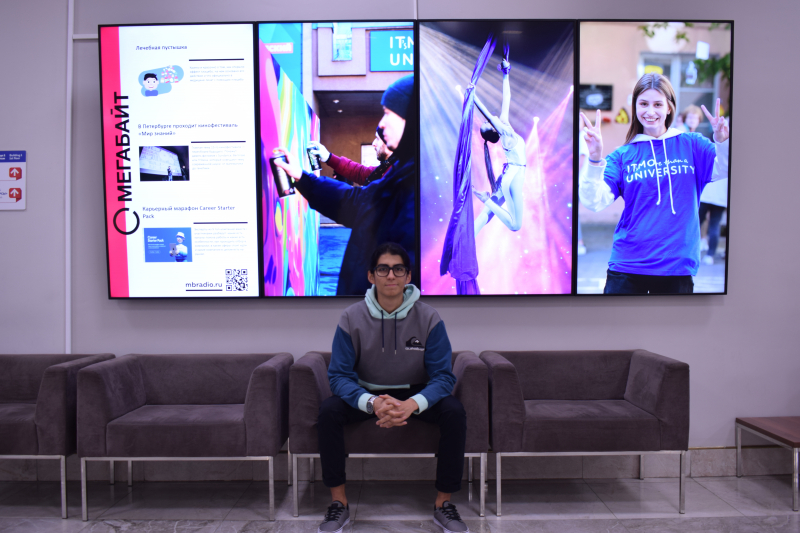
What surprised you the most about St. Petersburg and ITMO?
I’m in love with Russia. This is an amazing country full of new things and interesting people. When I was in Novosibirsk, I realized we didn’t know anything about this culture in Colombia, and I wanted to explore it all. St. Petersburg has been very interesting and beautiful. There are so many new things to see and explore here, but it is a metropolis and life here is harder and more expensive. One of my favorite things in Russia is the security and people; you can walk anywhere at any time of the day without feeling scared. Russian culture, the architecture, cities, every day I fall more in love with it. It's different from what we've been taught, but not in a bad way. It is just impressive to know how other people think and behave. For me, Russian culture is rich, beautiful, and lovely. As with anywhere, there are bad things, but we should not complain about them knowing that there are lots of nice things, too.
What surprised me most about ITMO is how they do things differently than in the systematic traditional education. Their methodology and young teachers, and the fresh and impressive amounts of knowledge are something that I never have seen anywhere else.
What can you tell us about university life as an international student?
It was one of the biggest challenges that I've faced, but life brought me very special people who helped me survive in this metropolis. The language was the first barrier, as I didn’t understand very well in the classes. I felt lost all the time and did not know what to do. The teachers helped me, some tried hard to explain to me in English or recommended literature. My friends always helped me with all my questions, but fortunately, my Russian is better now. So far I haven’t had a chance to participate in sports or explore the facilities that much. Studies consume me, and more now that everything's online. Studying at ITMO has been a very interesting personal development process. Facing these kinds of challenges helps you to know yourself, and shows what you are capable of.
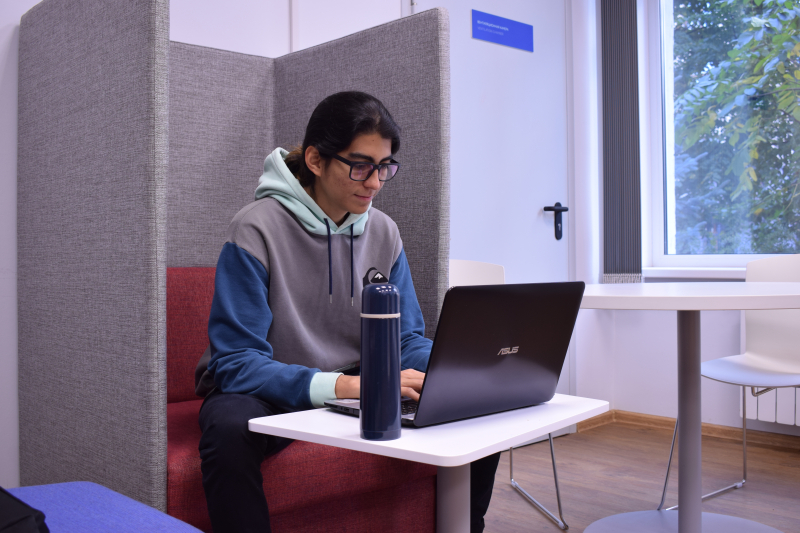
What are your expectations at the University and your plans for the future?
I expect to become a professional, with deep knowledge about computing, find a job with the university, and keep learning as much as possible. My first and principal objective is to finish my Bachelor’s and look for a job as a programmer while I study. After that, I would like to pursue a Master’s degree at ITMO (it would be amazing knowing all the changes and the new campus that are coming) and try to do one year in Russia and another in Europe. Later, I would apply for a job in the research field at the university or in an international company.
Any advice for other international students who want to come to Russia and learn the language, get their Bachelor’s degree, and change their life as you did?
It was one of the biggest decisions in my life, and I would never regret it. I totally recommend taking the risk – everyone should get out of their bubble and explore the world! There are too many beautiful things all around the world to discover. I started in Russia, an amazing country that has provided me education, experiences, knowledge, and self-development like nowhere else. Russia is more than vodka and bears. As a fellow student, I invite you to take that big leap.
Interview prepared by Juan Sebastian Velasquez Acevedo

